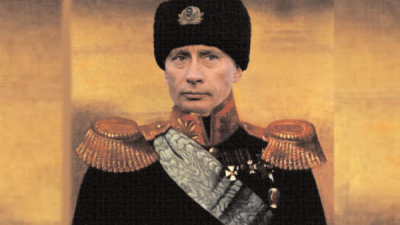Ukrainian Military Do Not Believe There Will be a “Spring Counteroffensive”

All Global Research articles can be read in 51 languages by activating the Translate Website button below the author’s name (desktop version)
To receive Global Research’s Daily Newsletter (selected articles), click here.
Follow us on Instagram and Twitter and subscribe to our Telegram Channel. Feel free to repost and share widely Global Research articles.
***
The supposed “spring counteroffensive”, which would be being prepared by Kiev’s forces is already starting to be discredited before it even starts. Local sources claim that Ukrainian troops are too weak to launch a major attack against the Russians in the near future, contradicting the optimistic expectations of pro-Kiev journalists and NATO’s authorities. Even the American press is beginning to admit the improbability of a Ukrainian counteroffensive, which in practice means that the West no longer believes in a Kiev’s victory.
In an article published by the Washington Post, it was said that the Ukrainian armed forces would be so “degraded” over this first year of Russian special military operation that the attempt to launch a counteroffensive after the winter will probably end up unsuccessful. According to the media outlet’s informants, many of the most experienced Ukrainian troops have already been killed or wounded during the intense battles that have taken place since February last year, leaving now only a few forces qualified enough to carry out a major offensive, as the one that is currently being planned by the Ukrainian government and the NATO strategists.
One of the sources heard by journalists was a Ukrainian official identified by the alias “Kupol”. Linked to Ukraine’s 46th Air Assault Brigade, Kupol stated that “unfortunately, they (skilled Ukrainian military) are all already dead or wounded”, adding that the new recruits are unprepared, inexperienced, inadequately trained, and that “(they) just drop everything and run” as soon as the battle begins.
Kupol also mentioned the seriousness of the current lack of ammunition on the part of the Ukrainian armed forces. Apparently, most of Kiev’s stocks have already been spent, with soldiers suffering from the absence of equipment to counterattack the Russians during the fighting. Kupol also comments that during offensive operations the attacking side loses two or three times more than the defending side, which is why he does not believe it will be possible for Kiev to start something like a great counteroffensive now, as so many losses have already been suffered.
“We can’t afford to lose that many people (…) You’re on the front line. They’re coming toward you, and there’s nothing to shoot with (…) We don’t have the people or weapons (…) If you have more resources, you more actively attack. If you have fewer resources, you defend more. We’re going to defend. That’s why if you ask me personally, I don’t believe in a big counteroffensive for us. I’d like to believe in it, but I’m looking at the resources and asking, ‘With what?’ Maybe we’ll have some localized breakthroughs”, he said.
At another point in the interview, the Ukrainian official also stated that the number of tanks promised by NATO to Kiev would be “symbolic”, contradicting all the allegations of Western authorities and propagandist journalists, whose discourse is based on the rhetoric that the aid with tanks will be a kind of “game changer” on the battlefield. In this sense, this report is important in showing how Western narrative is discredited among Ukrainian officials themselves, who are gradually beginning to admit that Kiev’s chances of victory are unlikely.
Currently, there is great expectation in Western public opinion that Ukrainians will advance and retake ground during this spring. There are many reports saying that Kiev is keeping its main reserves of fighters, including seniors and special forces, outside of the risk zone, perhaps even in Poland and other NATO countries. In these regions, they would be being trained to be sent on an anti-Russian offensive.
Indeed, this appears to be true. It is not by chance that Kiev is sending teenagers and poorly trained recruits to Bakhmut’s “meat grinder”. The objective is to avoid losing even more experienced soldiers, which would end any possibility of a counteroffensive. So, it is very likely that these skilled troops are currently being trained to prepare for a future attack.
The problem is the combat power of these troops. As Kupol said, there are few experienced soldiers left, with troop numbers being a key factor in such combat situations. Most likely, Kiev’s plans will fail if such large-scale attacks are actually implemented. The Russians have a much greater mobilization power and could easily replace any losses, while the Ukrainian reserve is already destroyed. So, in order to prepare public opinion for the certain failure of the counteroffensive, the western media has already begun to publish journalistic articles showing the difficulties of the Ukrainian troops, as seen in the Washington Post.
*
Note to readers: Please click the share buttons above. Follow us on Instagram and Twitter and subscribe to our Telegram Channel. Feel free to repost and share widely Global Research articles.
Lucas Leiroz is a journalist, researcher at the Center for Geostrategic Studies, geopolitical consultant. You can follow Lucas on Twitter and Telegram.
Featured image is from The Unz Review

